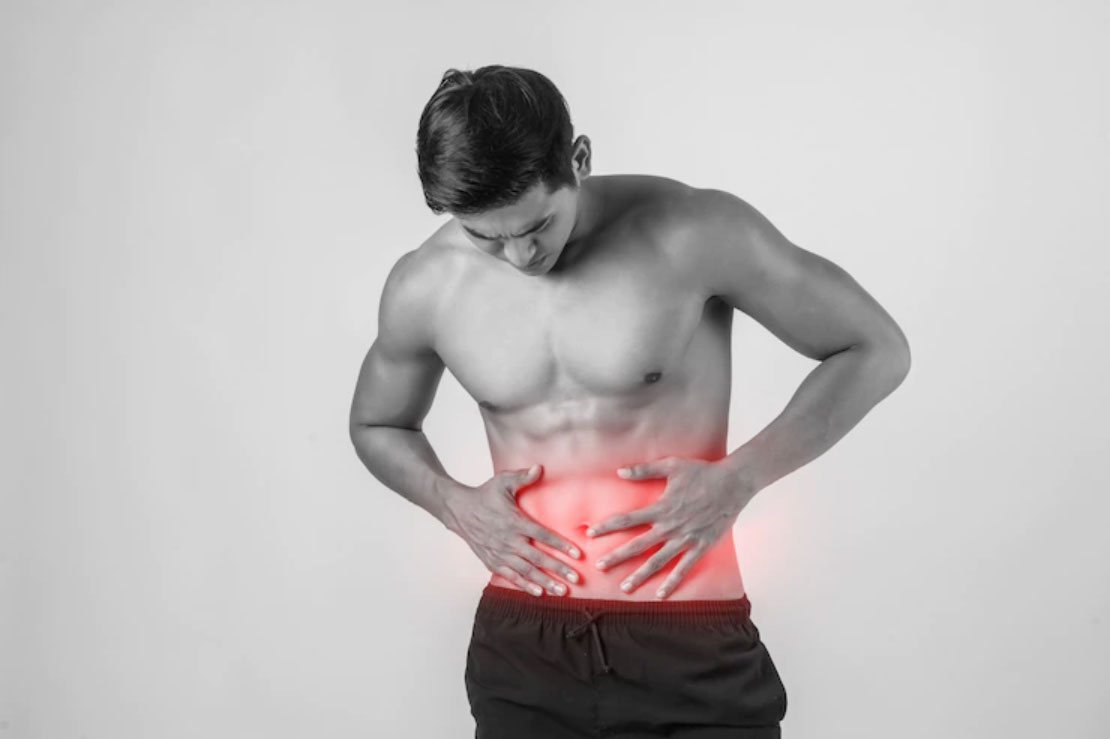
Pait Mein Maror (Abdominal Cramps) - Causes, Symptoms & Treatment
“Pait mein maror” (abdominal cramps) is one of the most common digestive complaints that brings patients to Dr. Muhammad Ali Taj’s gastroenterology practice in Karachi. These painful contractions of stomach muscles can range from mild discomfort to severe pain, affecting your daily activities and quality of life.
What Are Pait Mein Maror (Abdominal Cramps)?
”Pait mein maror” or abdominal cramps refers to painful spasms in the muscles of the stomach and intestines. These cramps may feel like:
- Sharp, intense pain that comes and goes
- Twisting or knotting sensations (“maror” in Urdu literally means “twisting”)
- Squeezing or tightening in the abdominal area
- ”Pait ki ainthon” (stomach contractions)
Dr. Taj explains that these cramps occur when the smooth muscles in your digestive tract contract abnormally or with increased intensity.
Common Causes of Pait Mein Maror (Abdominal Cramps)
Digestive Disorders
- Irritable Bowel Syndrome (IBS): A common chronic disorder causing abdominal pain, bloating, and altered bowel habits
- ”Hazme ki kharabi” (Indigestion): Often triggered by eating too quickly or consuming fatty, spicy foods
- Food poisoning: Caused by consuming contaminated food or water
- Gastroenteritis: Inflammation of the stomach and intestines, commonly called “food infection” or “pet ki infection”
Female-Specific Causes
- Menstrual cramps (“mahwari ke dard”)
- Ovulation pain
- Pregnancy-related discomfort
- Endometriosis
Other Medical Conditions
- ”Pathari” (Kidney stones or gallstones)
- “Appendix” (Appendicitis)
- Intestinal obstruction (“aant mein rukawat”)
- Inflammatory bowel disease (Crohn’s disease or ulcerative colitis)
- Urinary tract infections (“peshaab ki nali ki infection”)
Lifestyle Factors
- Stress and anxiety (“tension”)
- Poor dietary habits
- Lactose intolerance (“doodh se hassasiyat”)
- Excessive gas (“gas ki takleef”)
Warning Signs: When to See Dr. Taj for Pait Mein Maror
Seek immediate medical attention if your abdominal cramps are accompanied by:
- Severe, persistent pain lasting more than a few hours
- Fever (“bukhar”)
- Bloody stools (“khoon wale dast”)
- Persistent vomiting (“qai”)
- Inability to pass gas or stool
- Swollen or tender abdomen
- Jaundice (yellowing of skin or eyes, “yarqaan”)
These symptoms may indicate a serious condition requiring urgent evaluation by Dr. Taj.
Diagnosis of Pait Mein Maror
Dr. Taj’s approach to diagnosing the cause of abdominal cramps involves:
Medical History and Physical Examination
A thorough discussion about your symptoms, their duration, and factors that worsen or relieve the pain, followed by a comprehensive physical examination.
Laboratory Tests
- Blood tests to check for inflammation, infection, or anemia
- Stool analysis to detect parasites, bacteria, or blood
- Urine tests to rule out urinary tract infections
Advanced Diagnostic Procedures
As an endoscopy specialist with over 13,500 procedures performed, Dr. Taj may recommend:
- Upper GI Endoscopy: To examine the esophagus, stomach, and upper intestine
- Colonoscopy: To evaluate the large intestine
- Ultrasound or CT Scan: To visualize abdominal organs
- ERCP or EUS: For detailed examination of the bile ducts, gallbladder, and pancreas
Effective Treatments for Pait Mein Maror (Abdominal Cramps)
Medication Options
The treatment depends on the underlying cause but may include:
- “Dard ki dawa” (Pain relievers): Like paracetamol or NSAIDs for temporary relief
- Antispasmodics: Medications that relax intestinal muscles, such as hyoscine butylbromide (Buscopan)
- Antibiotics: For bacterial infections
- Acid reducers: For cramps related to acid reflux or ulcers
- Anti-diarrheal medications: For cramps associated with diarrhea
Lifestyle Modifications
Dr. Taj often recommends these lifestyle changes:
- Dietary adjustments: Identifying and avoiding trigger foods
- ”Pani ki miqdar barhana” (Increasing water intake)
- Regular exercise: To improve digestive function
- Stress management techniques: Including meditation and deep breathing
- Heat application: Applying a warm compress to the abdomen
Home Remedies for Mild Cramps
For mild cases, these traditional remedies may provide relief:
- “Adrak ki chai” (Ginger tea)
- “Pudina” (Mint) infusions
- ”Ajwain” (Carom seeds) steeped in warm water
- ”Saunf” (Fennel) tea
- Gentle abdominal massage
Prevention of Pait Mein Maror
Follow these preventive measures recommended by Dr. Taj:
- Eat smaller, more frequent meals
- Chew food thoroughly and eat slowly
- Avoid known trigger foods (often spicy, fatty, or gas-producing)
- Stay well-hydrated
- Manage stress effectively
- Exercise regularly
- Maintain a food diary to identify patterns
To schedule an appointment with Dr. Taj, contact via WhatsApp at 0312 3803935.
Medical Disclaimer: The information provided in this article is for educational purposes only and is not intended to be a substitute for professional medical advice, diagnosis, or treatment. Always seek the advice of your physician or other qualified health provider with any questions you may have regarding a medical condition.
